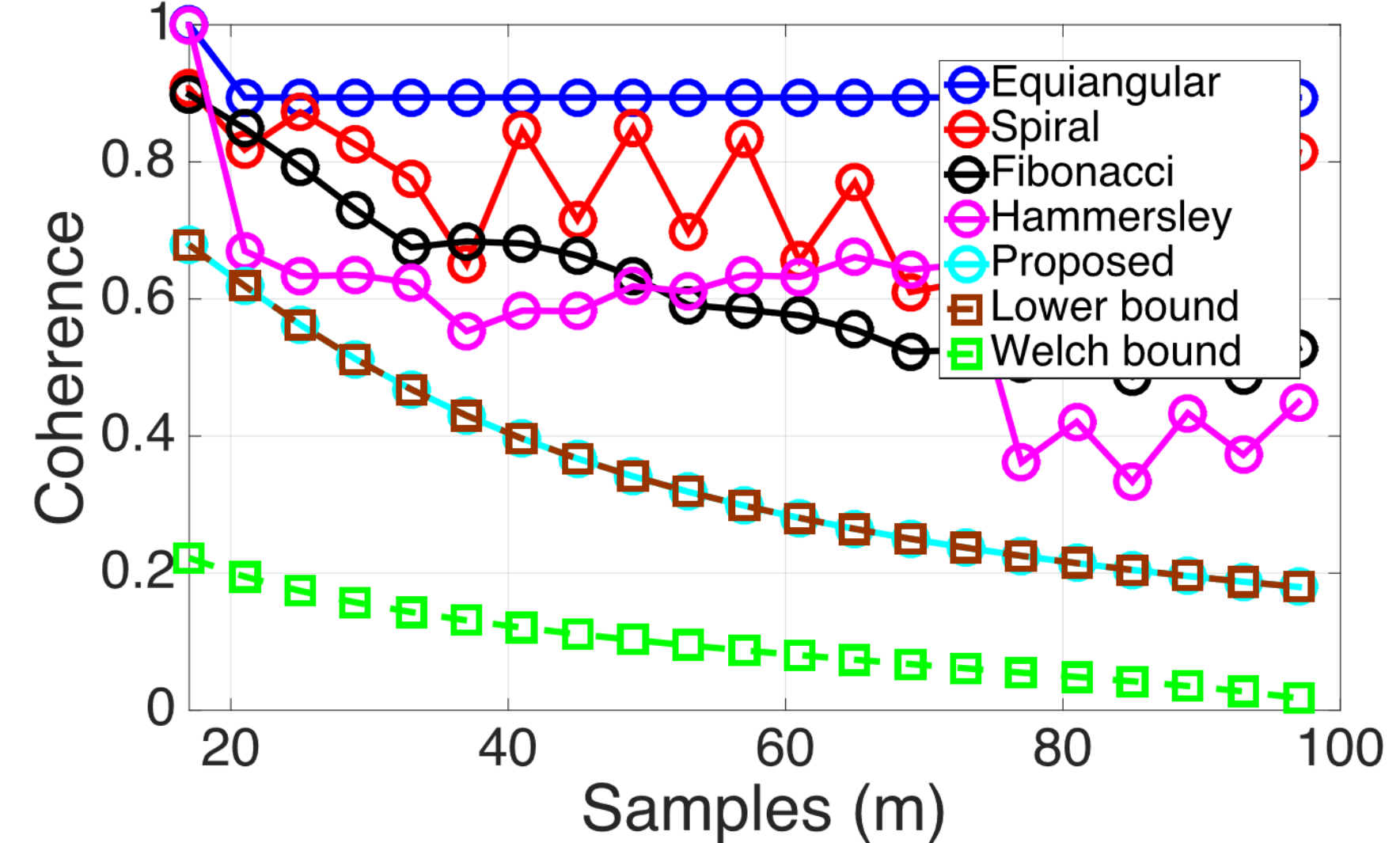Sensing Matrix Design and Sparse Recovery on the Sphere and the Rotation Group
In this paper, the goal is to design random or regular samples on the sphere or the rotation group and, thereby, construct sensing matrices for sparse recovery of band-limited functions. It is first shown that random sensing matrices, which consists of random samples of Wigner D-functions, satisfy the Restricted Isometry Property (RIP) with a proper preconditioning and can be used for sparse recovery on the rotation group. The mutual coherence, however, is used to assess the performance of deterministic and regular sensing matrices. We show that many of widely used regular sampling patterns yield sensing matrices with the worst possible mutual coherence, and therefore are undesirable for sparse recovery. Using tools from angular momentum analysis in quantum mechanics, we provide a new expression for the mutual coherence, which encourages the use of regular elevation samples. We construct low coherence deterministic matrices by fixing the regular samples on the elevation and minimizing the mutual coherence over the azimuth-polarization choice. It is shown that once the elevation sampling is fixed, the mutual coherence has a lower bound that depends only on the elevation samples. This lower bound, however, can be achieved for spherical harmonics, which leads to new sensing matrices with better coherence than other representative regular sampling patterns. This is reflected as well in our the numerical experiments where our proposed sampling patterns match perfectly the phase transition of random sampling patterns.
PDF Abstract